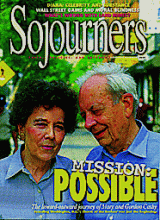Question: Was "taxation without representation" abolished after the Revolutionary War? Answer: Not for everyone. Citizens of the District of Columbia have one of the highest tax rates in the nation-but no voting representative in Congress. To add insult to injury, the power of their only elected officials-the mayor, the city council, and the school board-has recently been stripped away by Congress.
For most Americans the face of Washington, D.C., is David Letterman's favorite politician, Mayor Marion Barry. Or it may be the criminals who helped D.C. gain the reputation as the Murder Capital of the world. Or maybe it is the infamous, car-swallowing potholes; or the schools that yet again did not open on time; or the broken and dysfunctional welfare, housing, mental health, or prison systems. The fact is, the District is a mess.
That's ostensibly why earlier this year the U.S. Congress, led by Sen. Lauch Faircloth of North Carolina, took control of the District. This didn't happen overnight. It started with the 1995 appointment of a control board to oversee city finances. In 1996, the control board disbanded the school board just days after members had been elected and appointed a retired military general and a board of trustees to run the disintegrating school system. The city's last vestiges of independence finally disappeared this fall when Congress stripped all power away from the mayor and city council, leaving them as primarily ceremonial figureheads. Within hours of the president's signing of the legislation that accomplished this, the control board met and-in a move that far exceeded the power intended for them-fired the heads of every city agency and appointed temporary replacements.
Read the Full Article
